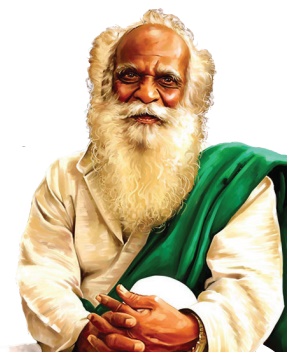On Killing a Tree - by Gieve Patel | English Poem - Listening | 9th English : UNIT 3 : Poem : On Killing a Tree - by Gieve Patel
Chapter: 9th English : UNIT 3 : Poem : On Killing a Tree - by Gieve Patel
Listening
LISTENING
G. Listen to the passage about Nammazhwar, an environmental
crusader from Tamil Nadu. As you listen, answer the following questions. The
listening act can be repeated if required.
Nammazhwar was born in 1938 in Elangadu,
Thanjavur District, and he graduated from Annamalai University with a B.Sc. in
Agriculture. In 1963, he began working for the Agricultural Regional Research
Station, a government organisation in Kovilpatti, as a scientist, conducting
trials on spacing and use of various chemical fertilizers in cotton and millet
crops. During his tenure there, the government had conducted various
experiments in rain-fed land, using expensive inputs like hybrid seeds,
chemical fertilizers and chemical pesticides which Nammazhwar considered futile
as the farmers were resource poor. Based on his experience, he felt very
strongly that it was imperative to totally reorient the research work being
undertaken. But his peers at the institute paid little attention to his advice.
Frustrated, he left the institute in 1969.
For the next 10 years, he was an agronomist for
Island of Peace, an organisation founded by the Nobel Laureate Dominique Pire.
His focus was on improving the standard of living through agricultural
development in the Kalakad block of Tirunelveli District, Tamil Nadu. It was at
this time that he realised that to get optimal results in farming, farmers
should rely only minimally on external inputs. All inputs should come from
within the farm. So called waste should be recycled and used as input. This
revelation was a turning point in his life. He completely lost trust in
conventional farming practices and began experimenting with sustainable
agricultural methods.
Vegetables have a short lifespan compared to
fruit crops. By making use of modern technologies and inputs, their lifespan
can perhaps be extended to say about a year. But if there is a simple method of
growing vegetables throughout the year, without any costly gadgets, modern
technologies, or costly inputs, it is definitely worth a try for the farmers.
He advocated the ‘Bread sandwich’ method. In
this method once the soil is made ready and the suggested practices followed,
one need not work on the soil for the second time. They can go on sowing and
reaping, all through the year.
He always said it was no use trying to teach a
farmer. Instead, one should make the farmer understand the issue. He never
stopped learning from them himself and had become a vast repository of farming
practices and knowledge that he shared with whoever was interested. He never
pushed ideas down anyone’s throat. Each farm is unique according to the
farmers’ understanding and the conditions, Nammazhwar would say. He would keep
experimenting with what he learned from the farmers, refined this knowledge and
then gave it back to them.
He often said “Farming is not a way of producing crops to make money. It is a way of living, and a way of living that is
possible even in the 21st century.” He trained hundreds of farm youths as
trainers and helped many farmers to
be master trainers—all this without the support of the government.

1. Who is Nammazhwar? What is his contribution
to farmers and farming?
Nammazhwar was a graduate in agriculture. His contribution was
that all inputs must come from within the form and the waste should be recycled
and used as input.
2. In 1963 he worked for the Agricultural Regional Research Station, a
government organization in kovilpatti, as
3. What was the turning point in the life of
Nammazhwar?
The revelation of recycling
the waste to be used as an output in farming was his turning point.
4.
How is the “Bread sandwich method” a boon to the farmers?
The soil is made ready and the suggested practices followed
without working on the soil for the second time. The farmers can go on sowing
and reaping throughout the year. This is the boon to the farmers.
5.Pick out
ideas from the
passage to show
that he learnt
first and then shared with farmers.
He never stopped learning from the farmers. He became a vast
repository of farming practices and knowledge. He never pushed ideas down
anyone's throat. According to the farmer's understanding and conditions each
farm is unique.
6.
Explain in your own words the meaning of “Farming ___________ even in the 21st
Century”
Farming is not for making
but a way of living and it is possible in the 21st century.
7.
Give the synonyms
of ‘rely’ and
‘sustainable’.
Synonyms of 'rely' is depend
Synonyms of sustainable is maintainable
8.
“He never pushed ideas down anyone’s throat” means
(a)
favoured
(b)
compelled
(c)
opposed
Answer: b) Compelled
Related Topics